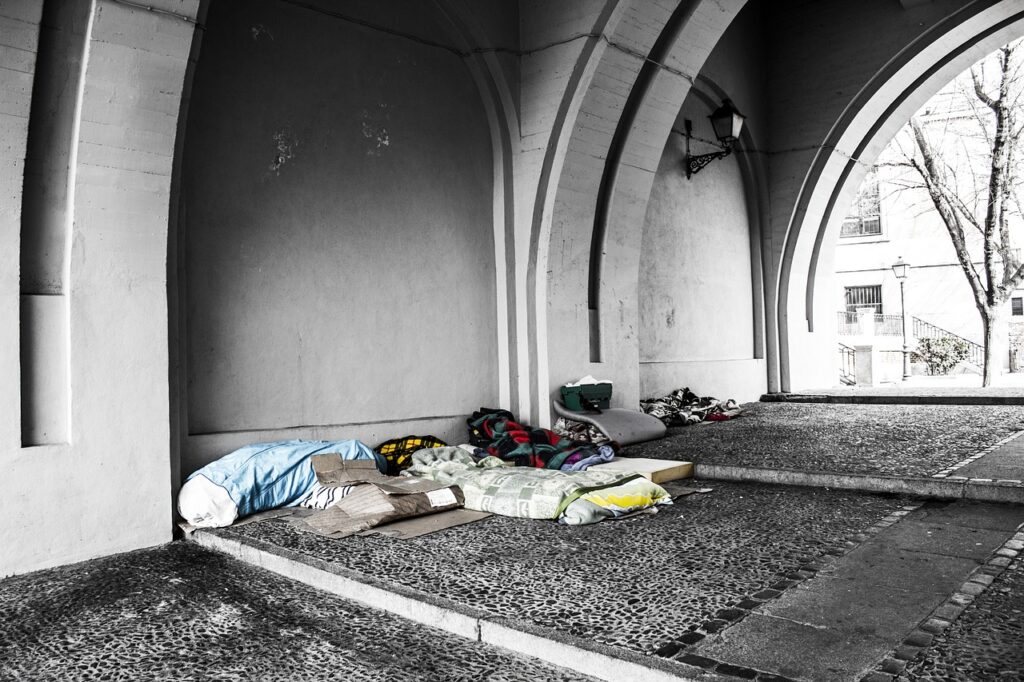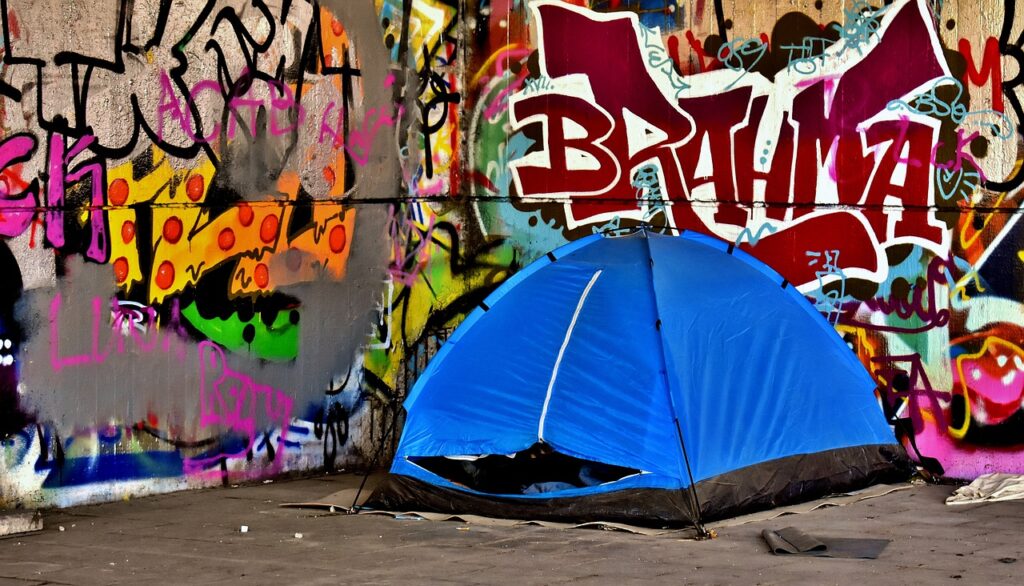A new Florida law banning outdoor sleeping took effect on Tuesday, impacting thousands of individuals experiencing homelessness across the state. House Bill 1365 prohibits camping on streets, sidewalks, and parks, requiring local authorities to provide temporary shelters with access to mental health and drug treatment services.

Impacts on Homeless Communities
The law has caused concern among those living on the streets. Mildred Forti, who has been homeless with her husband for several months in Miami, expressed her frustration: “We’re camping out in public because we can’t afford rent. Now we’ll have to move again.” Many, like Forti, feel the law does not address the root causes of homelessness but rather punishes those already struggling.
Efforts to Address Housing Shortages
Miami-Dade County has been working to create more housing options. Ron Book, chairman of the Miami-Dade Homeless Trust, highlighted ongoing efforts to increase shelter availability. The county plans to convert a hotel into housing for low-income seniors and construct hundreds of new units over the next year. However, space remains limited, with shelters already at capacity. As of now, over 1,000 people in Miami-Dade are unsheltered.

Law Enforcement’s Role
Local law enforcement agencies are still determining how to enforce the new law. Miami police will prioritize connecting people to available resources, while Fort Lauderdale has expanded its outreach staff to guide individuals into programs and permanent housing. However, some fear that those who refuse shelter may face misdemeanor charges such as trespassing.
Long-term Solutions
Book emphasized the county’s commitment to finding dignified solutions. While the new law permits temporary encampments, Miami-Dade has rejected this option, instead focusing on adding shelter beds and services. A navigation center, offering beds and health services, is also planned as a short-term solution while more housing is built.
As Florida grapples with rising homelessness, the debate continues over whether the state’s new law will help or further marginalize those without a roof over their heads.